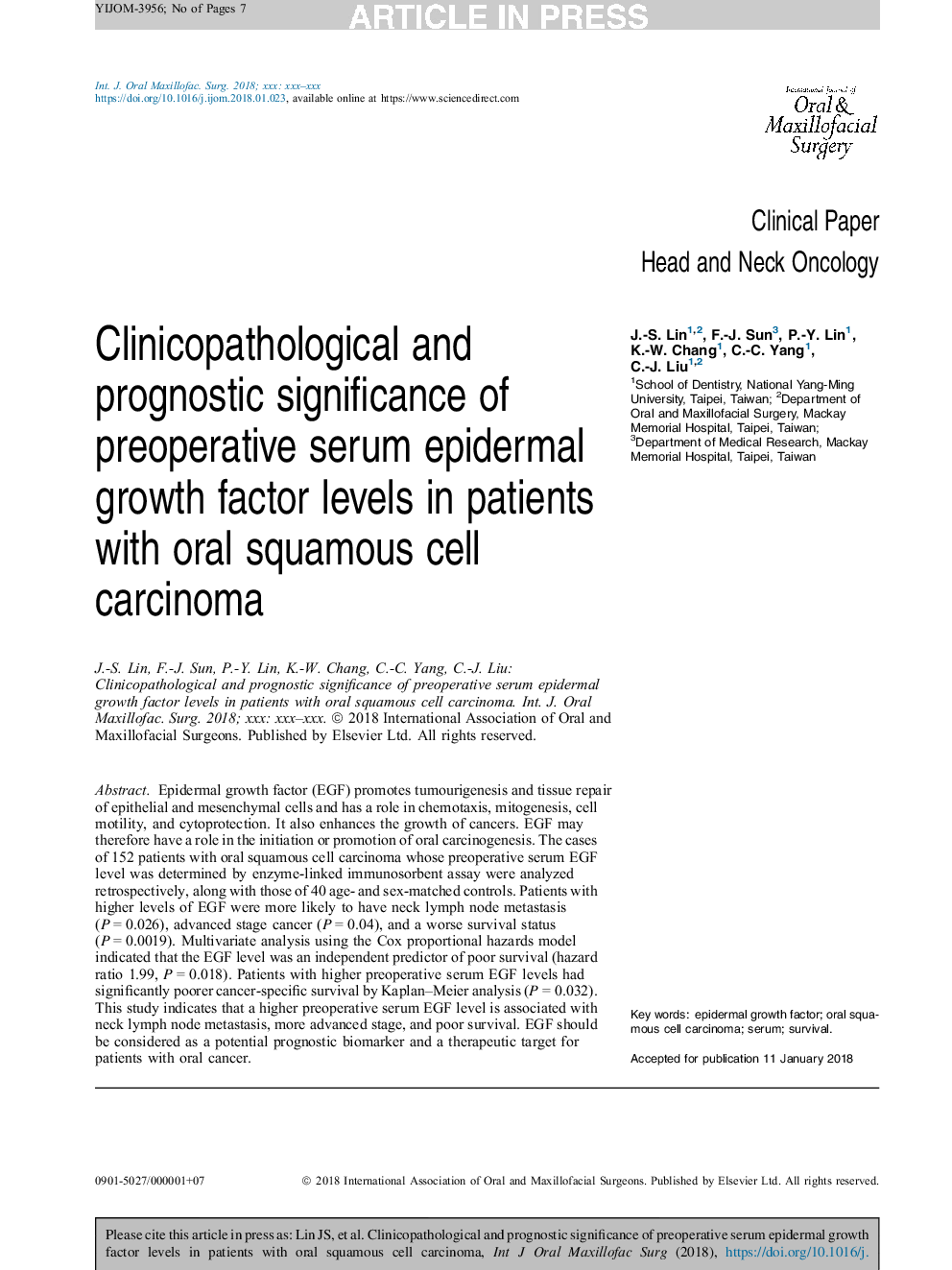| Article ID | Journal | Published Year | Pages | File Type |
|---|---|---|---|---|
| 8963549 | International Journal of Oral and Maxillofacial Surgery | 2018 | 7 Pages |
Abstract
Epidermal growth factor (EGF) promotes tumourigenesis and tissue repair of epithelial and mesenchymal cells and has a role in chemotaxis, mitogenesis, cell motility, and cytoprotection. It also enhances the growth of cancers. EGF may therefore have a role in the initiation or promotion of oral carcinogenesis. The cases of 152 patients with oral squamous cell carcinoma whose preoperative serum EGF level was determined by enzyme-linked immunosorbent assay were analyzed retrospectively, along with those of 40 age- and sex-matched controls. Patients with higher levels of EGF were more likely to have neck lymph node metastasis (PÂ =Â 0.026), advanced stage cancer (PÂ =Â 0.04), and a worse survival status (PÂ =Â 0.0019). Multivariate analysis using the Cox proportional hazards model indicated that the EGF level was an independent predictor of poor survival (hazard ratio 1.99, PÂ =Â 0.018). Patients with higher preoperative serum EGF levels had significantly poorer cancer-specific survival by Kaplan-Meier analysis (PÂ =Â 0.032). This study indicates that a higher preoperative serum EGF level is associated with neck lymph node metastasis, more advanced stage, and poor survival. EGF should be considered as a potential prognostic biomarker and a therapeutic target for patients with oral cancer.
Related Topics
Health Sciences
Medicine and Dentistry
Dentistry, Oral Surgery and Medicine
Authors
J.-S. Lin, F.-J. Sun, P.-Y. Lin, K.-W. Chang, C.-C. Yang, C.-J. Liu,
